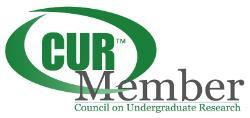Crystal S. Anderson, PhD
Director, Office of Student Research
For many disciplines, the literature review is a common feature of inquiry-based writing. A literature review is an examination of published work on a topic that establishes the current state of the topic in a field.
Many dread the literature review, or worse, consider it to be an unimportant part of a scholarly work. Victoria Reyes reminds us of the value of the literature review, which she calls a “theoretical framework,” in her piece “Demystifying the Journal Article” for Inside Higher Ed. Rather than “a passive review of what others have said about your topic,” she argues that the theoretical framework “lead[s] your reader through gaps in the literature” and “includes information that your reader needs to know in order to understand your argument.” While scholarly writing often includes a literature review, a stand-alone literature review is also valuable: “If we view research as a conversation, then the framework signals who you are in conversation with—that is, the relevant audience” (Reyes). The Writing Center at the University of North Carolina at Chapel Hill highlights other uses for the literature review, including keeping professionals “up to date with what is current in the field” and providing “a solid background for a research paper’s investigation.”
Students often have the opportunity to write literature reviews for courses, and the Office of Student Research now offers a destination for such work. They may submit review articles (stand-alone literature reviews) or review essays (comparative book reviews) to The Omnipedia Review, the peer-reviewed online journal of the Office of Student Research. Students may also apply to work on the journal as paid copy editors and readers. Visit The Omnipedia Review to learn more.
Sources
Reyes, Victoria. “Demystifying the Journal Article.” Inside Higher Ed. 9 May 2017. https://www.insidehighered.com/advice/2017/05/09/how-write-effective-journal-article-and-get-it-published-essay (26 Sept 2017).
“Literature Review.” The Writing Center – The University of North Carolina at Chapel Hill. http://writingcenter.unc.edu/tips-and-tools/literature-reviews/ (26 Sept 2017).




